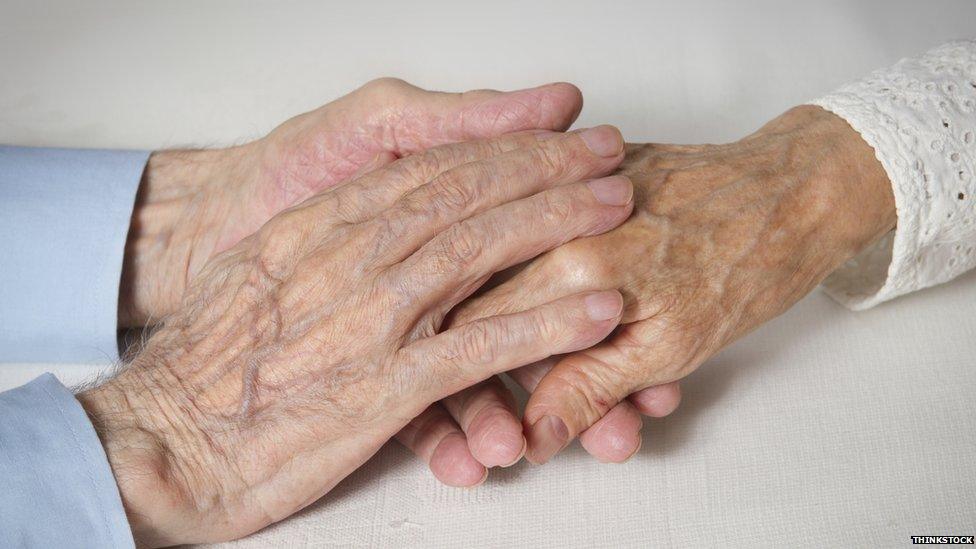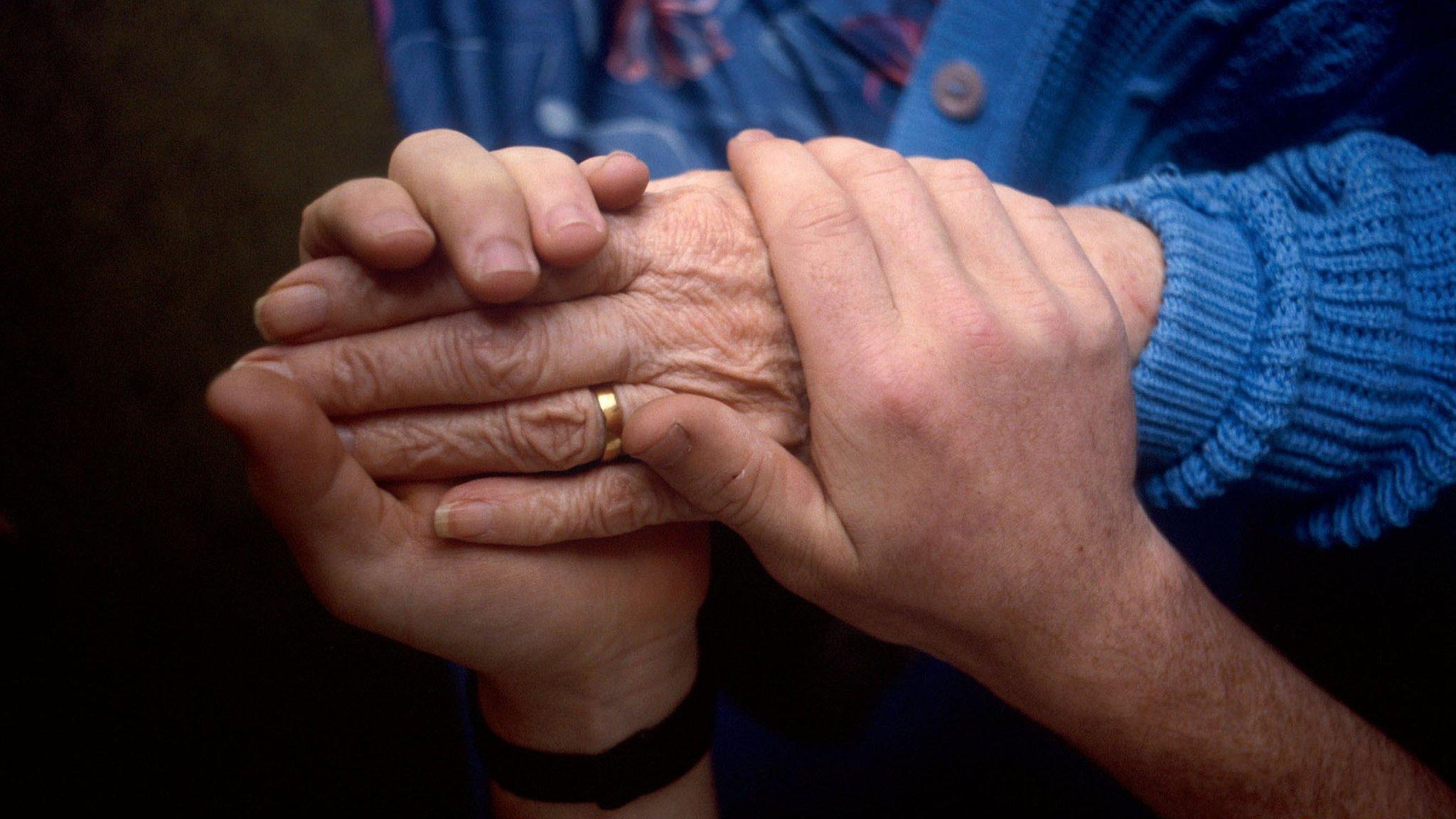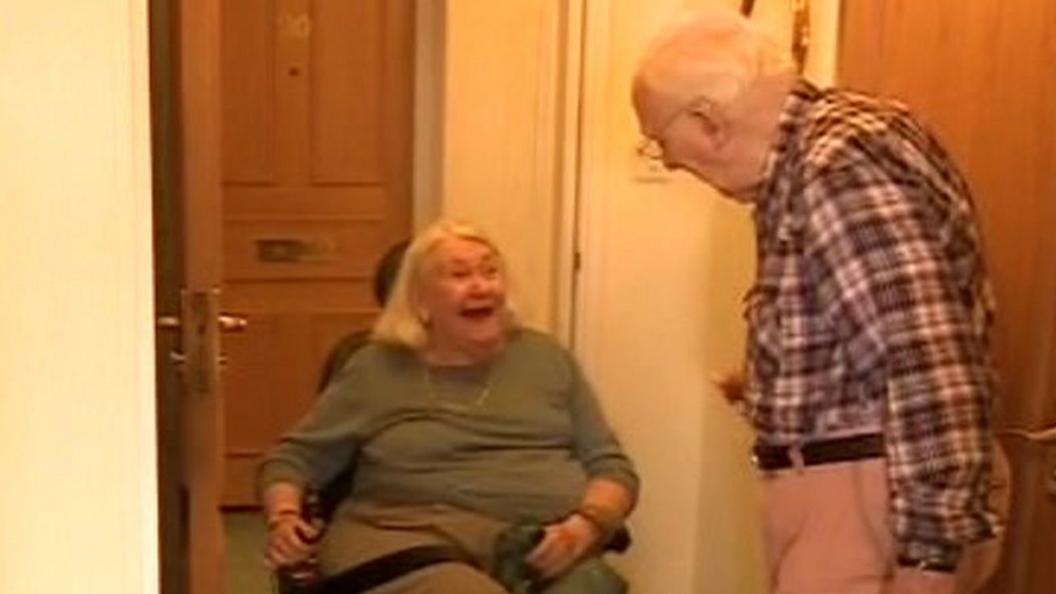'Hidden army' of carers in their 80s, says Age UK
- Published

The number of people in their 80s or older who are relied on as carers has rocketed in the last seven years, according to a charity.
Age UK says one in seven of the "oldest old" - an estimated 417,000 people in all - now provides some sort of unpaid care to family or friends.
Over half of these clock up more than 35 hours a week.
Many are exhausted and say they worry about how long they might be able to carry on, says the charity.
The findings come from a yearly representative household survey, external of 15,000 people aged 60 and older. The results were multiplied to give an estimate for the whole of the UK.
In 2009, an estimated 301,000 people in their 80s were carers. That figure has now risen by nearly 40%, largely due to an ageing population but partly due to a lack of state support, says Age UK.
Caroline Abrahams, charity director at Age UK, said: "The task of providing care ought to be fairly shared between individuals, families and the state, but as public funding falls further and further behind the growing demand for care, we worry that very old people are being expected to fill the gap. They can't do it all on their own and we shouldn't take advantage of their determination to do right by those they love."
The charity Carers UK called for extra investment in social care services and the NHS to meeting the increasing demand.
A nation of carers
6.5m
carers in the UK
-
38% increase expected in their number by 2034
-
1.4m provide 50 hours of unpaid care per week
-
£119bn estimated amount carers save the UK economy per year
The Department of Health is consulting on how it can improve support for carers. People have until 30 June 2016 to submit their views, external.
Community and Social Care Minister Alistair Burt said: "We owe a great deal to the love and determination of older carers.
"I want to make sure the government does everything it can to support them. That is why I am calling on carers and their supporters up and down the country to let us know how we can make a difference."
Caring can involve anything from help with washing and dressing to looking after people with dementia.
The government says caring for others should not be to the detriment of the carer's own health and wellbeing and carers can receive support in a number of ways - including from social services, the NHS, or the benefit system.
- Published7 May 2016

- Published17 May 2016
